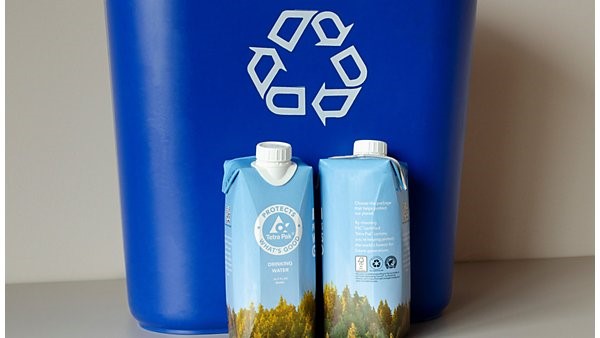

In the pursuit of a greener tomorrow, Tetra Pak has ignited a €40 million investment blaze to propel carton recycling in Europe. This visionary move unveils four remarkable projects, each a beacon illuminating the path toward a circular economy.

Tetra Pak joins forces with Axjo Group in Sweden, orchestrating a symphony of innovation. Together, they envision a recycling line, a marvel capable of processing 10,000 tonnes of polyethylene and aluminium (polyAl). This endeavour aims to breathe new life into injection-moulded plastic products, from cable drums to storage boxes, weaving sustainability into everyday essentials.
Tetra Pak's polyAl revolution – A chronology
A Spanish collaboration between Tetra Pak and Trans Sabater amplifies polyAl recycling capacity from 3,000 to 10,000 tonnes annually. This metamorphosis is a testament to their commitment to redefining waste into a valuable resource. Alier, the carton reprocessor, dances in harmony with Tetra Pak, trying to transmute non-fibre material into pellets destined for diverse end markets. Their shared aspiration is to recycle over 15,000 tonnes of polyAl by 2025.
Tetra Pak invests €1 million in Recon Polymers' polyAl recycling plant, orchestrating a crescendo of progress. Their goal is clear - elevate capacity to 8,000 tonnes per year. This collaboration in the Netherlands symbolises Tetra Pak's unwavering dedication to amplifying recycling infrastructures across borders, creating a harmonious rhythm for a circular economy.
PolyAl's composition and the essence of circularity
PolyAl, a dynamic duo of polyethylene and aluminium, forms the core of Tetra Pak's recycling vision. The proper extraction of materials ensures not only the preservation of resources but also the creation of sustainable alternatives. It's a pivotal step toward a circular economy, where waste transforms into opportunity, and each carton becomes a vessel of change.
The vice president of sustainability operations at Tetra Pak, Markus Pfanner, commented: "For us, this goes beyond industry investment. It's part of the transformation towards a circular economy and an investment in the future of the planet."
"Beverage cartons are recyclable. They are recycled wherever the necessary collection, sorting and recycling infrastructure is in place, at scale, so naturally, expanding this infrastructure is a priority for us," Pfanner concluded.
As beverage cartons transcend recyclability, Tetra Pak's expansion of infrastructure emerges as a vital priority. This visionary investment is a clarion call, resonating with the ethos of a circular economy and beckoning others to join the symphony of sustainability. If you are interested in knowing more about such green initiatives, go through AL Circle’s special report, Sustainability in the Global Aluminium Industry.
Responses








